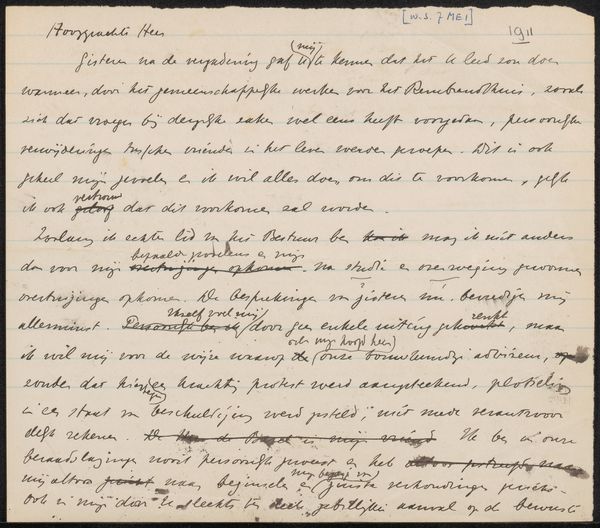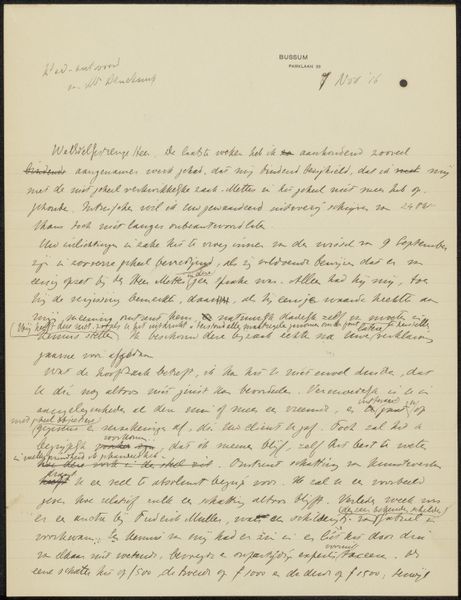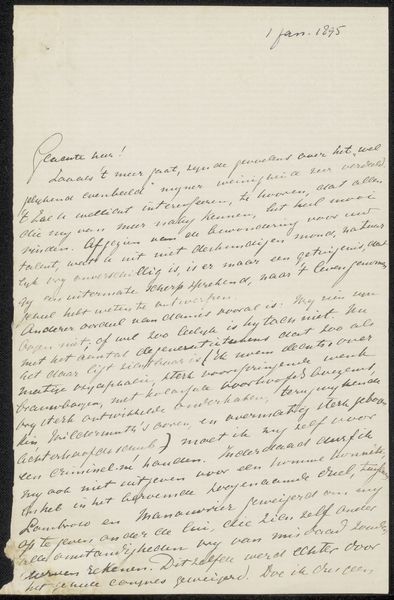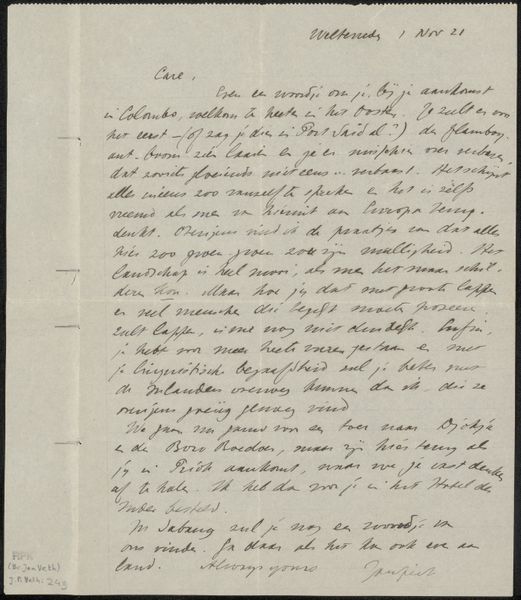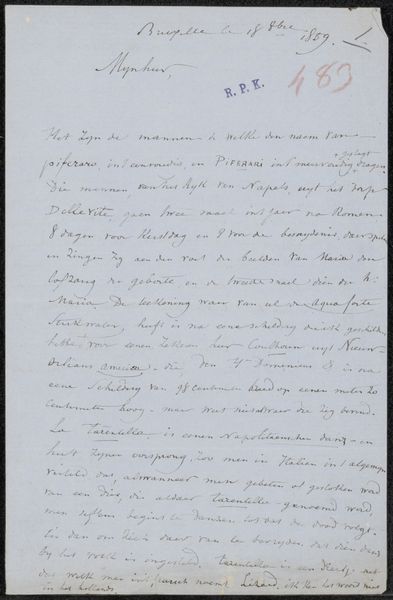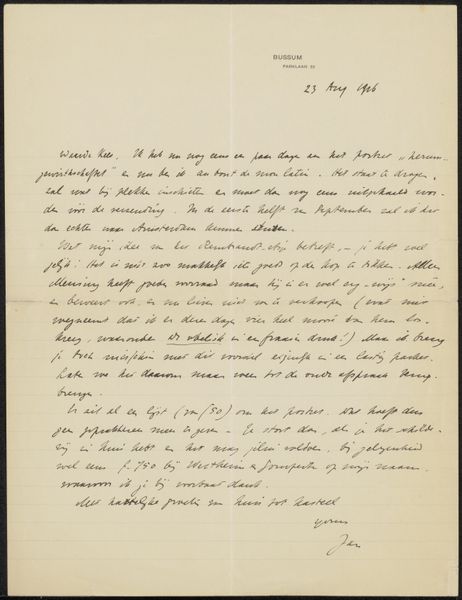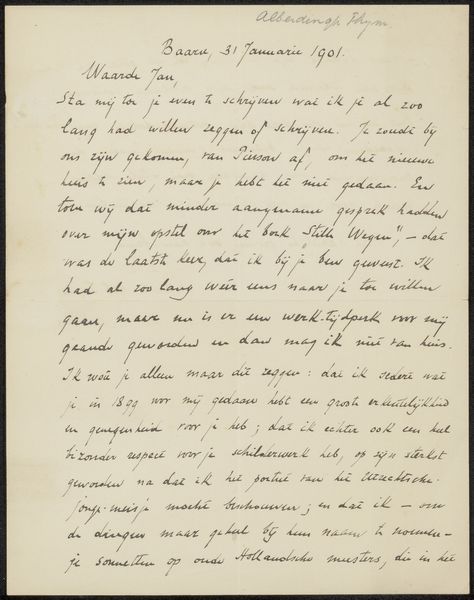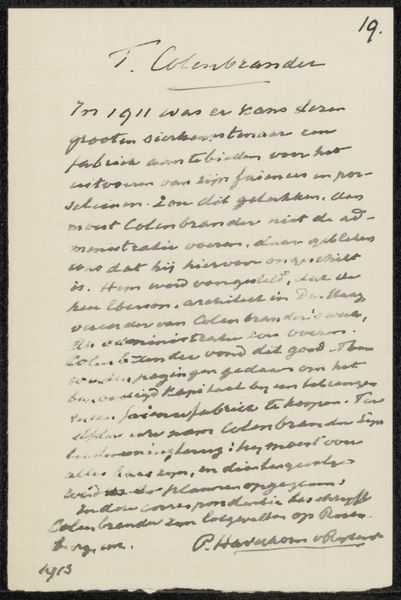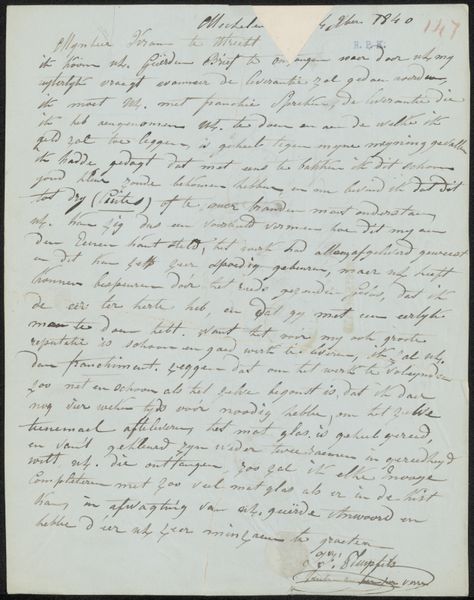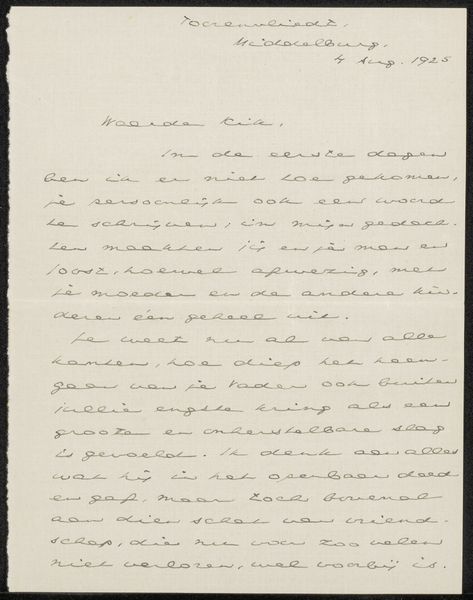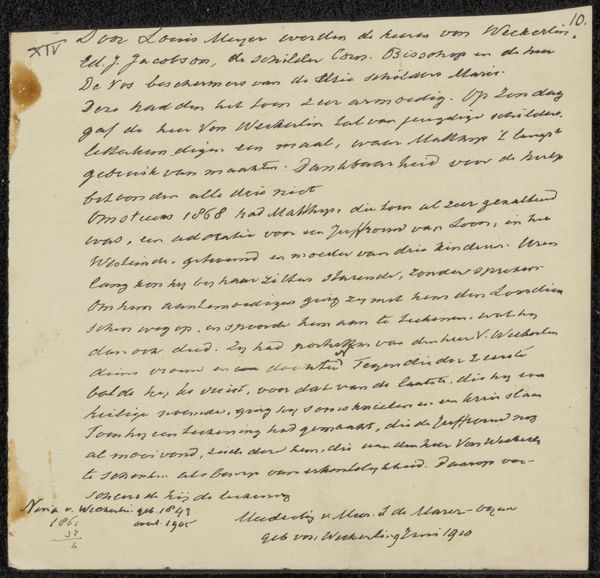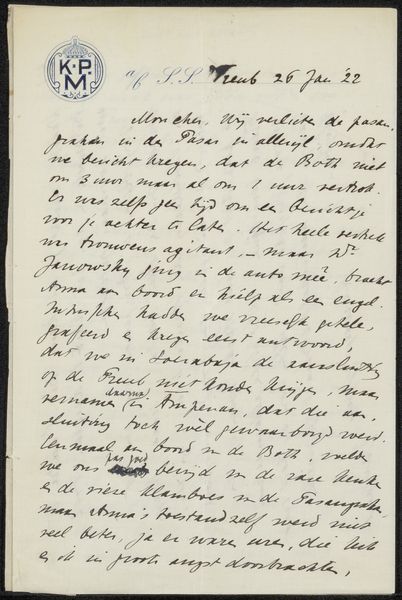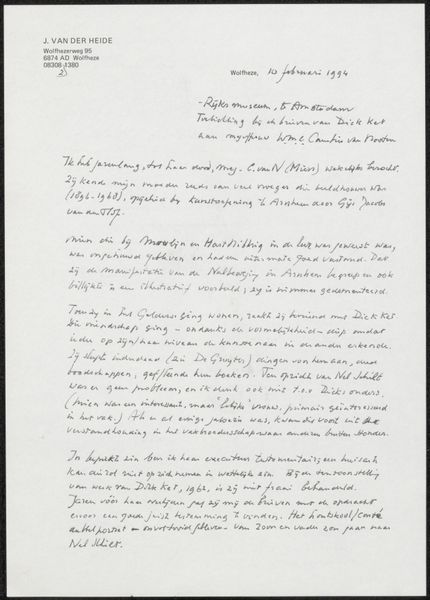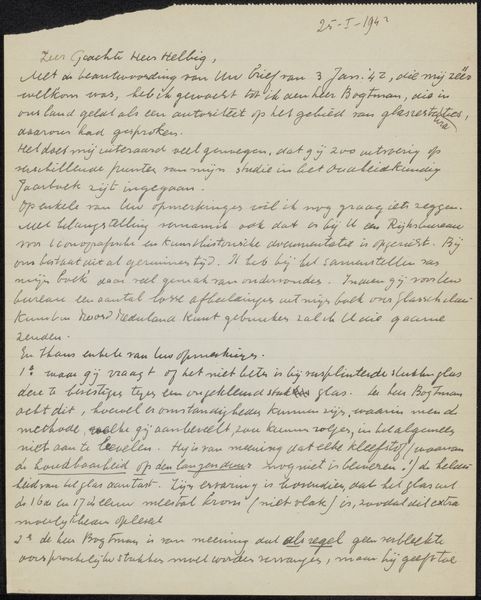
Transcriptie van (een deel van) een brief aan mevrouw Sues after 1899
0:00
0:00
drawing, textile, paper, ink, pen
#
drawing
#
ink paper printed
#
hand drawn type
#
textile
#
paper
#
personal sketchbook
#
ink
#
pen-ink sketch
#
sketchbook drawing
#
pen
#
sketchbook art
Copyright: Rijks Museum: Open Domain
Curator: Today, we’re examining a piece entitled "Transcriptie van (een deel van) een brief aan mevrouw Sues," which translates to "Transcription of (a part of) a letter to Mrs. Sues," created by Pieter Haverkorn van Rijsewijk, likely after 1899. The artwork consists of ink on paper. Editor: My initial reaction? Intimate, hesitant…like peeking at someone's thoughts. The looping script gives it an almost musical quality, despite its being words. Curator: Indeed. Note how the composition guides your eye, mirroring the structure of a written letter. There is a clear top to bottom linearity, subtly enforced by the horizontal lines present on the sheet, which give this transcribed correspondence a structural framework that enhances readability and invites a disciplined reading. Editor: It's a messy kind of disciplined though. The handwriting has a restless energy. It almost feels like the words are trying to escape the page. A peek into the private chaos that makes a finished artwork resonate. What narrative whispers are we picking up from Haverkorn's composition? Curator: Intriguing that you pick up on chaos. I read the work as tightly controlled through formal economy of the textual and compositional presentation: line, shape and the careful ordering of text creates both legibility and a sense of determined, pre-determined control, as exemplified in structuralist reading strategies. It’s text as art object. Editor: Perhaps it's both, no? That tension is where the spark lies. It makes you question the relationship between the artist and subject, what secrets or personal reflection might it have caught between the page and the eye? It does not shy away from this liminal dialogue. It hints towards an internal world teeming with experience. Curator: Ultimately, this transcription compels us to consider the boundaries between text, image, and personal expression. The way Haverkorn van Rijsewijk balances form and content adds multiple layers of interpretation, rewarding repeated readings. Editor: Precisely, a beautiful dance between the seen and the unseen.
Comments
No comments
Be the first to comment and join the conversation on the ultimate creative platform.
